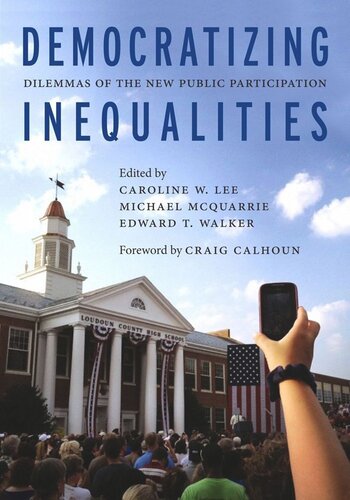

Most ebook files are in PDF format, so you can easily read them using various software such as Foxit Reader or directly on the Google Chrome browser.
Some ebook files are released by publishers in other formats such as .awz, .mobi, .epub, .fb2, etc. You may need to install specific software to read these formats on mobile/PC, such as Calibre.
Please read the tutorial at this link: https://ebookbell.com/faq
We offer FREE conversion to the popular formats you request; however, this may take some time. Therefore, right after payment, please email us, and we will try to provide the service as quickly as possible.
For some exceptional file formats or broken links (if any), please refrain from opening any disputes. Instead, email us first, and we will try to assist within a maximum of 6 hours.
EbookBell Team

5.0
110 reviewsOpportunities to “have your say,” “get involved,” and “join the
conversation” are everywhere in public life. From crowdsourcing and town hall
meetings to government experiments with social media, participatory politics increasingly
seem like a revolutionary antidote to the decline of civic engagement and the
thinning of the contemporary public sphere. Many argue that, with new
technologies, flexible organizational cultures, and a supportive policymaking
context, we now hold the keys to large-scale democratic revitalization.
Democratizing Inequalities shows that the equation may not be so
simple. Modern societies face a variety of structural problems that limit
potentials for true democratization, as well as vast inequalities in political
action and voice that are not easily resolved by participatory solutions. Popular
participation may even reinforce elite power in unexpected ways. Resisting an
oversimplified account of participation as empowerment, this collection of
essays brings together a diverse range of leading scholars to reveal surprising
insights into how dilemmas of the new public participation play out in politics
and organizations. Through investigations including fights over the
authenticity of business-sponsored public participation, the surge of the Tea
Party, the role of corporations in electoral campaigns, and participatory
budgeting practices in Brazil, Democratizing
Inequalities seeks to refresh our understanding of public participation and
trace the reshaping of authority in today’s political environment.